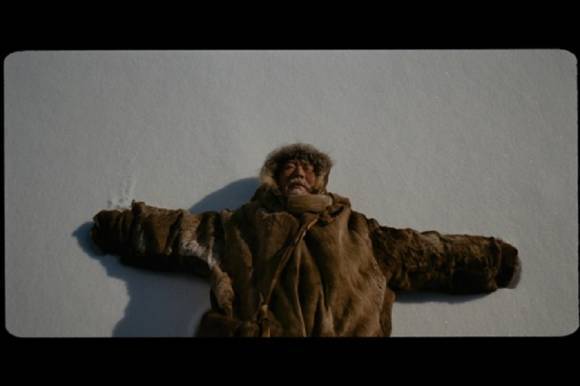It became imperative that the state institutions catch up on their delay by amending the Film Industry Act and putting it in line with the Communication on State Aid for Films and Other Audiovisual Works (2013/C 332/01), the Commission Regulation No 651/2014 of 17 June 2014 and the Commission Regulation No 1407/2013 of 18 December 2013.
In October 2018 Sofia hosted the 152nd meeting of the Eurimages Board of Management.
Milko Lazarov’s Ága closed the Official Competition (Out of Competition) of the 68th Berlinale and afterwards received 21 prestigious awards all over the world.
Two Bulgarian production companies got involved as minority coproducers in two prestigious Romanian films. Agitprop coproduced Adina Pintilie’s Golden Bear winner Touch Me Not, while Klas Film was a coproducer of the 53rd Karlovy Vary IFF’s Crystal Globe winner “I Do Not Care If We Go Down In History As Barbarians” by Radu Jude.
PRODUCTION
Seventeen feature films were produced in 2018, of which 12 were supported by the Bulgarian National Film Center and five were privately financed.
Three of the supported films were made with minority financial participation from other countries. The debut films were five in number and they were all supported by the Bulgarian National Film Center.
The Bulgarian National Television backed the production of 8’19”, a six part omnibus film directed by Peter Valchanov, Lubomir Mladenov, Theodor Ushev, Nadejda Koseva, Vladimir Lyutskanov and Kristina Grozeva, and took part as a minor coproducer in Milko Lazarov’s Aga and in Victor Bojinov’s Heights.
in Victor Bojinov’s Heights.
A total of 21 short films were made in 2018, of which seven were supported by the Bulgarian National Film Center.
In late autumn of 2018 Stefan Komandarev shot the bigger part of his urban nightly sequel Rounds aka Patrol Cars in Sofia. Each episode was filmed in a single hand-held shot, without editing cuts. Rounds is coproduced by Bulgaria’s Argo Film, Serbia’s Film Pro and French outfits Deuxième Ligne Films and EZ films. The film is supported by Eurimages and will be sold by Beta Cinema.
Victor Chouchkov completed shooting on his international drama 18% Gray, based on Zachary Karabashliev’s bestseller. Filming took place in the UK, Belgium and Germany. The film is a coproduction between Bulgaria’s Chouchkov Brothers, Germany’s Ostlicht Filmproduktion, Serbia’s Cinnamon Films, Belgium’s Raised by Wolves and Macedonia’s Sektor Film Skopje.
Acclaimed director Ivan Nichev shot Could You Kill aka Old Men, an alarming drama on sharp contemporary topics like poverty, unemployment, terrorism and illegal immigration. Cinemascop is producing with the support of the Bulgarian National Film Center.
Famous for his successful animated films, director Anri Koulev shot his period drama Once Upon a Time There Was a War, reminding military conflicts in the Balkans from 1885, with British star Ben Cross in the cast. The director is producing through Koulev Film Production in cooperation with the BNT. The Bulgarian NFC is supporting.
Known for her internationally acclaimed Monkeys in Winter (2006, Bulgaria’s Proventus Film House and Germany’s Tatfilm), Milena Andonova completed the shooting on her sophomore film The Shepherd in 2018. The period drama is about St. Ivan Rilski, the patron saint of the Bulgarian people. Proventus Film House is producing in cooperation with the BNT and the Sofia based Nu Boyana Film Studios.
In 2018 Milko Lazarov’s Ága, coproduced by Bulgaria’s Red Carpet, Germany’s 42 film and France’s Arizona Productions, closed the Official Competition (Out of Competition) of the 68th Berlinale and went on to receive 21 prestigious awards all over the world, including best film 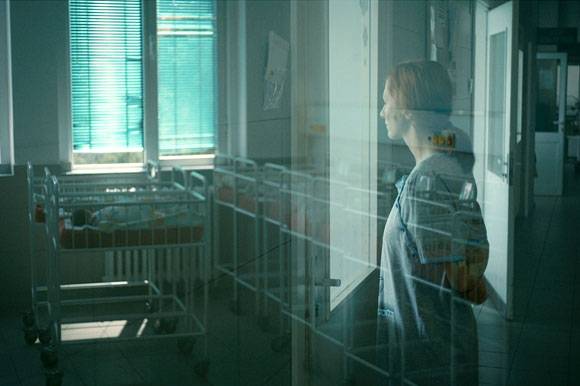 at the 37th Fajr IFF, the 24th Sarajevo IFF and the 36th Golden Rose NFF.
at the 37th Fajr IFF, the 24th Sarajevo IFF and the 36th Golden Rose NFF.
The 36th Golden Rose NFF also gave its best debut prize to Nadejda Koseva’s Irina, produced by Art Fest. The film, and especially its lead actress Martina Apostolova, impressed international film festivals such as the 36th Warsaw FF, the 28th Cottbus FF, the 16th Tirana IFF (best film) and others.
In 2018 RFF International involved Bulgaria as minority coproducer in Nuri Bilge Ceylan’s The Wild Pear Tree, next to France’s Memento Films, Germany’s Detailfilm, Macedonia’s Sisters And Brother Mitevski, Sweden’s Film i Väs, The Chimney Pot and Turkey’s Zeynofilm.
Tonislav Hristov’s Finnish/Danish/Bulgarian long documentary The Magic Life of V was selected to compete in the 2019 Sundance FF and the 69th Berlinale’s Generation section, while Petar Krumov’s short film Shame was nominated for the European Film Academy Awards.
The 24th Golden Rhyton Festival for documentary and animated films was to take place in December 2018, but just before its start the event was canceled. According to the official statement of the Bulgarian NFC “the number of films that applied is insufficient and makes it impossible to reach the level of the recent years and to compose strong competition programmes“.
Despite the fact that a significant part of the documentary and animated film production from 2018 could not get enough visibility, several titles received positive recognition. Boris Missirkov’s and Georgi Bogdanov’s Palace For the People (Agitprop) won the Dok Buster Award 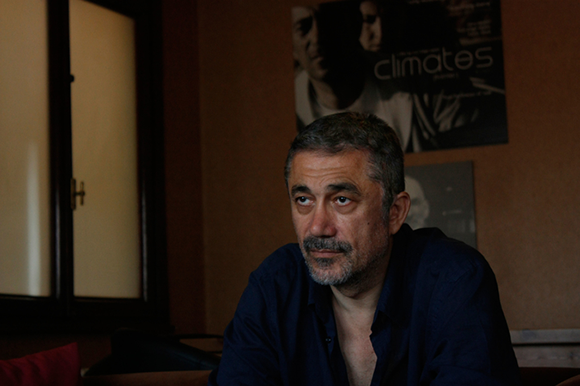 2018 for the audience's favourite at Doc Leipzig 2018.
2018 for the audience's favourite at Doc Leipzig 2018.
Stefan Ivanov’s A New Life, coproduced by Bulgaria’s Geopoly Film and Canada’s Les Ivanov productions, was well received in Canada, where many Bulgarians had found their second home country. Gospodin Nedelchev’s The Citizen Sis (Dido Film), on the Czech war correspondent Vladimir Sis, and Ralitza Dimitrova’s A Saga For Wasted Opportunities (B Plus Film), on national feelings 100 years after the signing the Treaty of Neuilly-sur-Seine, were among the successful documentaries in 2018.
Ten foreign films were partly or entirely shot in Bulgaria in 2018, most of them serviced by Bulgaria’s leading film production studios - Nu Boyana Film Studios, including The Outpost (Ghost House Pictures, Millennium Media) directed by Rod Lurie, and Rambo 5 (Millennium Media) directed by Adrian Grunberg. The first one recreates violent war scenes in Afghanistan, while the second involves Hollywood star Sylvester Stallone in the role of John Rambo for the fifth time.
Launched as the first part of a trilogy, the Indian fantasy Brahmāstra (Dharma Productions) directed by Ayan Mukerji largely used the Nu Boyana sets.
DISTRIBUTION
According to the NFC, a total of 289 films were theatrically released in 2018: 111 from the USA, 138 European films, 30 domestic and 10 films from other countries. Total admissions were 4,900,408, of which American films had 3,852,296 admissions, European films 532,802 admissions and domestic films had 388,006 admissions.
In 2018 the country’s leading distribution companies were again Forum Film Bulgaria and Alexandra Group, with around 75 percent of the market. In 2018 they had respectively five and four American titles in the top ten. The privately financed Bulgarian feature film Attraction (Spirit Production House), released by Lenta (the distribution branch of the private TV channel Nova TV), ranked 8th in the top ten.
bTV Studios (the distribution branch of the private TV channel bTV) showed good results with two other independent Bulgarian films: Dimitar Gochev’s Revolution X (Di – Dreams) and Niki Iliev’s All She Wrote (Euro Dialogue Productions).
A+Films successfully reached the audience with Yassen Grigorov’s Lilly The Little Fish (TFA – The Flying Agency) and kept its traditional interest in distributing European and domestic films.
EXHIBITION AND BOX OFFICE
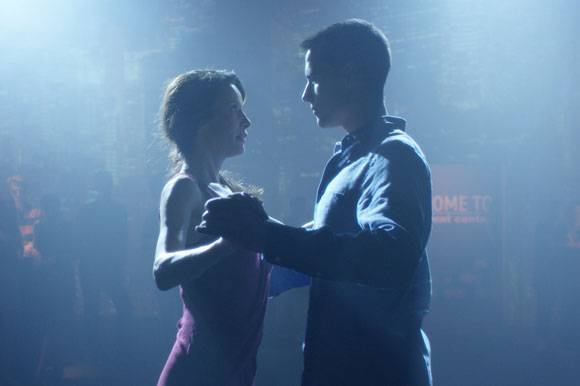 In 2018, the number of officially registered screens was 219, with 178 equipped for 3D screenings.
In 2018, the number of officially registered screens was 219, with 178 equipped for 3D screenings.
In 2018 total admissions were 4,900,408 and total box office was 23.5 m EUR. Compared to 5,566,585 admissions and the total box office of 25.9 m EUR in 2017, there is a decrease by 11.97 percent and 9.11 percent, respectively.
American films had 3,852,296 admissions and 19,118,053 gross, while European titles had 532,802 admissions and 2,555,649 EUR gross.
With 30 Bulgarian titles (including re-releases and holdovers) the number of released films stood nearly the same as in 2017.
The admissions for domestic films were 388,006 and the box office was 1.6 m EUR gross in 2018. Compared to 2017, when the admissions were 512,521 and the box office was 2.1 m EUR gross, there is a decrease by 24.29 percent and by 23.80 percent, respectively.
Martin Makariev’s Attraction (Spirit Production House) became Bulgaria’s domestic box office topper with 112,934 admissions and 444,184 EUR gross. Dimitar Gochev’s Revolution X (Di – Dreams) ranked second with 54,575 admissions and 230,470 EUR gross, followed by Niki Iliev’s All She Wrote (Euro Dialogue Productions) with 41,836 admissions and 178,283 EUR gross.
Stephan Komandarev’s Directions (produced by Argo Film and distributed by Purple Rain Film Distribution) ranked 4th with 37,623 admissions and 160,697 EUR gross, followed by Stanislav Todorov – Rogi’s low budget Bubblegum, produced by Dynamic Arts and distributed by Lenta, with 39,195 admissions and 156,835 EUR gross.
Two films focusing on younger audiences - Maria Veselinova’s debut feature Smart Christmas, produced by Juli Maruli Entertaiment and released by Lenta, and Yassen Grigorov’s Lilly The Little Fish (TFA – The Flying Agency), had 37,576 admissions and 153.638 EUR gross, and 35,095 admissions and 138,795 EUR gross respectively. The rest of the domestic films attracted less than 1,000 viewers each.
GRANTS AND NEW LEGISLATION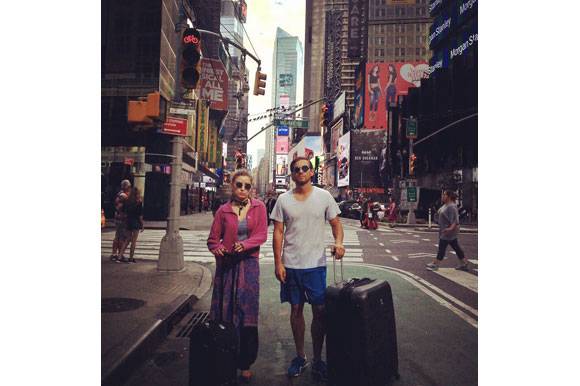
The procedure of bringing the existing film state aid schemes in line with the European Commission’s Communication on State Aid for Films and Other Audiovisual Works (2013/C 332/01) started on 6 March 2018, when Bulgaria’s Parliament adopted three important amendments to the Film Industry Act. The first one terminated the requirement for Bulgarian citizenship of the authors applying for state support. The second one fixed at 75% the lowest percentage of the allocated funds to be spent in Bulgaria. The third one submitted the definition of a “difficult film”, a film whose only version is in Bulgarian language and its budget is not higher than the average budget of the previous year.
The adjustment process was completed on 5 December 2018, when Bulgaria’s Parliament adopted the definitive amendments to the Film Industry Act. Only after this date did it become possible for the Bulgarian National Film Center to sign agreements with producers having already closed the budgets of their films. According to Jana Karaivanova, Executive Director of the Bulgarian National Film Center, by the very end of the year “the institution signed 90 agreements and unblocked over 2.2 m EUR”.
It was specifically indicated that public financing for film will be implemented through three main schemes in the future. Two of them are for the support of production and distribution. The third one is for the support of festivals and meets the European Commission's requirement for the de minimis state aid.
In October 2018 Sofia hosted the 152nd meeting of the Eurimages Board of Management. A group of experts analysed the facts and figures characterising the gender equality situation in the country’s audiovisual sector.
In 2018 Bulgaria also signed cooperation agreements with Romania, Macedonia and Kosovo.
The Bulgarian National Film Center and Nu Boyana signed a cooperation agreement on joint activities in the development and the stimulation of the production, distribution, display and promotion of Bulgarian films.
TV
 In June 2018 HBO acquired broadcast rights for 19 Bulgarian films (16 feature films and three documentaries) produced after 1989. The deal was part of HBO’s newly expanded distribution policy in the HBO Adria region, which gives subscribers from Bulgaria, Slovenia, Croatia, Serbia, Montenegro, Macedonia and Bosnia and Herzegovina access to the catalogue of the TV channel.
In June 2018 HBO acquired broadcast rights for 19 Bulgarian films (16 feature films and three documentaries) produced after 1989. The deal was part of HBO’s newly expanded distribution policy in the HBO Adria region, which gives subscribers from Bulgaria, Slovenia, Croatia, Serbia, Montenegro, Macedonia and Bosnia and Herzegovina access to the catalogue of the TV channel.
The Bulgarian film package was launched on 1 July 2018 with Victor Bojinov’s box office topper Heights, a the Bulgarian/Macedonian coproduction between Bulfilm and Dream Factory..
Two major TV series financed by the Bulgarian National Television were shot in 2018 and creative filmmakers with original artistic approach were invited to direct. Peter Valchanov and Kristina Grozeva directed The Blue Birds Island, based on Alexander Sekulov’s novel The Island, an adventure series filled with funny summer vacation stories (executive producer Red Carpet), while Pavel G. Vesnakov directed Father’s Day, a series inspired by real stories of divorcing parents who fought to remain an equally important part in their children’s lives (executive producer Agitprop).
CONTACTS:
BULGARIAN NATIONAL FILM CENTER
Executive Director: Jana Karaivanova
2 A, Dondukov Blvd., 7th floor
1000 Sofia, Bulgaria
Phone: + 359 2 9150 811
This email address is being protected from spambots. You need JavaScript enabled to view it.
www.nfc.bg
UNION OF BULGARIAN FILMMAKERS
Chairman: Ivan Pavlov
67, Dondukov Blvd.
1504 Sofia, Bulgaria
Phone: + 359 2 946 10 68
This email address is being protected from spambots. You need JavaScript enabled to view it.
www.filmmakersbg.org
MINISTRY OF CULTURE
Minister of Culture: Boil Banov
17, Stamboliiski Blvd.
1040 Sofia, Bulgaria
Phone: + 359 2 940 09 00 (switchboard)
This email address is being protected from spambots. You need JavaScript enabled to view it.
www.mc.government.bg
BULGARIAN NATIONAL FILM ARCHIVE
Director: Antonia Kovacheva
36, Gurko Str.
1000 Sofia, Bulgaria
Phone: + 359 2 987 02 96
This email address is being protected from spambots. You need JavaScript enabled to view it.
www.bnf.bg
BULGARIAN NATIONAL TELEVISION
General Director: Konstantin Kamenarov
29, San Stefano Str.
1504 Sofia, Bulgaria
Phone: + 359 2 814 22 14
Phone.: + 359 2 944 49 99 (switchboard)
www.bnt.bg
Report by Pavlina Jeleva (2019)
Source: the Bulgarian National Film Centre

